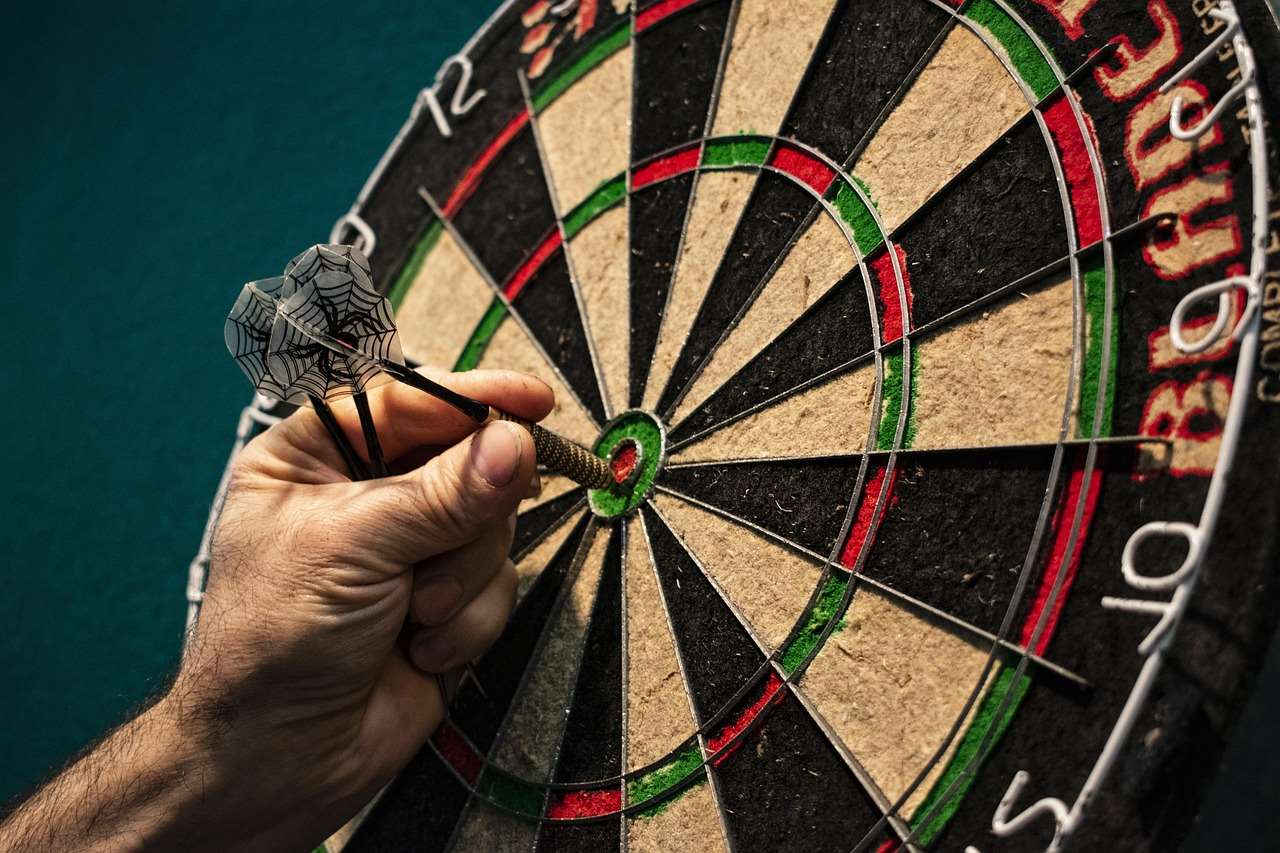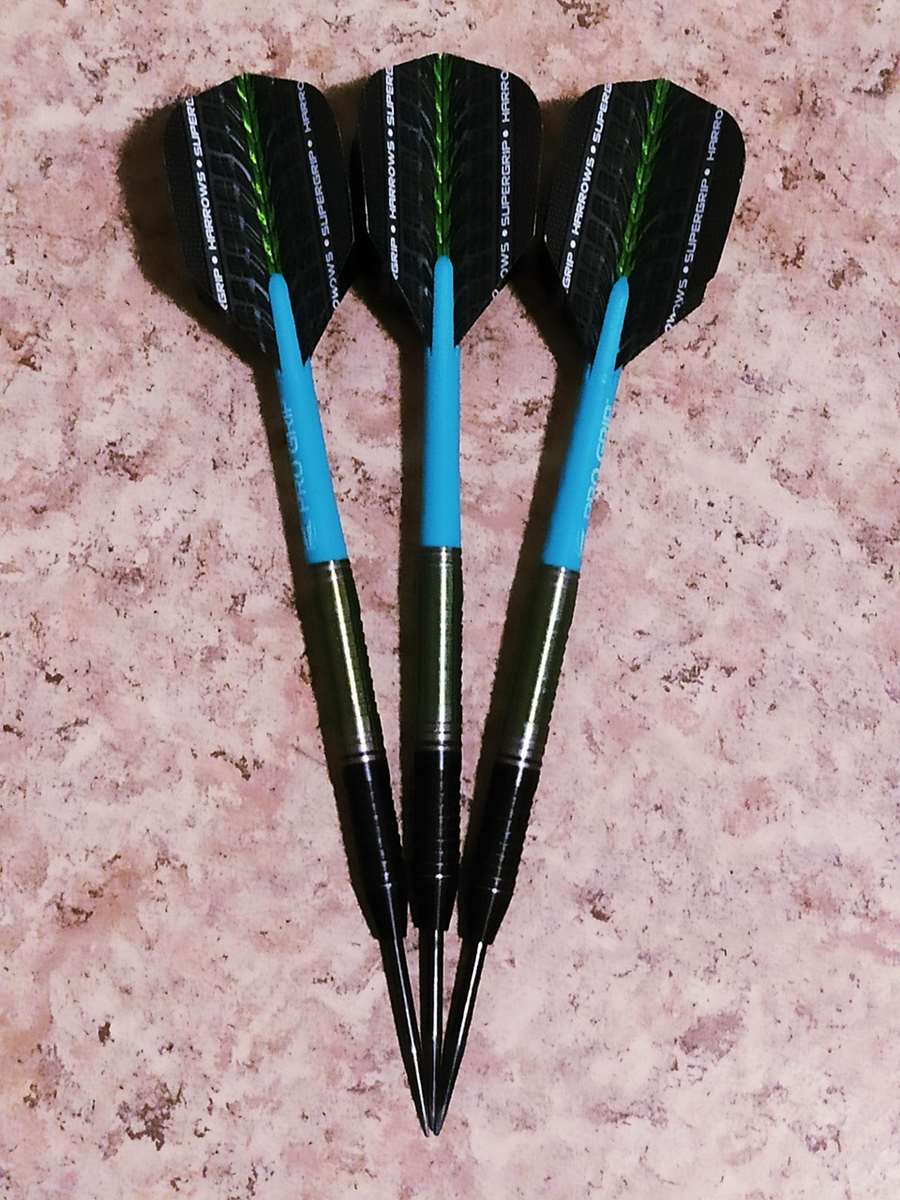Navigating darts venue licensing laws UK is essential for legally and smoothly operating any establishment offering darts. This article breaks down the key regulations, permits, and considerations involved in securing the necessary licenses, plus details advice on ensuring compliance to avoid costly fines and disruptions.
⚠️ Still Using Pen & Paper (or a Chalkboard)?! ⚠️
Step into the future! The Dart Counter App handles all the scoring, suggests checkouts, and tracks your stats automatically. It's easier than you think!
Try the Smart Dart Counter App FREE!Ready for an upgrade? Click above!
Understanding Licensing Requirements for Darts Venues in the UK
Operating a darts venue in the UK, whether it’s a pub, club, or dedicated darts center, requires understanding and adhering to specific licensing regulations. These regulations are primarily governed by the Licensing Act 2003, but other pieces of legislation may also be relevant depending on the specific activities taking place at the venue. It’s not just about selling alcohol; it also involves the overall environment and ensuring responsible operation.
The primary license required is a **Premises Licence**. This licence allows you to carry out licensable activities on the premises, which commonly include:
- Selling alcohol
- Providing regulated entertainment (including live music, performances, and potentially darts tournaments if they are considered entertainment)
- Serving late-night refreshments (between 11 pm and 5 am)
Understanding these basics is crucial before diving deeper into the specifics of darts venue licensing laws UK.

Applying for a Premises Licence
The application process for a Premises Licence involves several steps:
- Completing the Application Form: You’ll need to download the application form from your local council’s website. The form requires detailed information about the premises, the applicant, the proposed licensable activities, and the operating schedule.
- Preparing a Premises Plan: A detailed plan of the premises, showing the layout, entrances, exits, and areas where licensable activities will take place, is crucial. This plan helps the licensing authority assess the suitability of the premises.
- Appointing a Designated Premises Supervisor (DPS): If you plan to sell alcohol, you must appoint a DPS who holds a Personal Licence. The DPS is responsible for authorizing alcohol sales on the premises.
- Submitting the Application: The completed application form, premises plan, and the prescribed fee must be submitted to the local licensing authority. You must also send a copy of the application to the relevant responsible authorities, such as the police and fire service.
- Advertising the Application: You must advertise the application by displaying a notice prominently on the premises for a specified period (usually 28 consecutive days) and publishing a notice in a local newspaper. This allows interested parties to make representations (objections) to the application.
- Dealing with Representations: If any representations are received, the licensing authority will hold a hearing to consider the application and the representations. You will have the opportunity to present your case at the hearing.
- Granting the Licence: If no representations are received, or if the licensing authority is satisfied that any representations have been adequately addressed, the Premises Licence will be granted.
Key Considerations within Darts Venue Licensing Laws UK
Navigating darts venue licensing laws UK involves more than just obtaining the initial license. Several key considerations must be addressed to ensure ongoing compliance and smooth operation. These include factors like noise management and responsible alcohol sales.
Responsible Alcohol Sales
If you plan to sell alcohol at your darts venue, you must adhere to strict rules regarding responsible alcohol sales. This includes:
- Age Verification: Implementing a robust age verification policy and training staff to check identification.
- Preventing Drunkenness: Refusing service to intoxicated individuals and taking steps to prevent excessive drinking.
- Responsible Promotions: Avoiding promotions that encourage irresponsible drinking, such as “happy hour” deals.
Failure to comply with these requirements can result in fines, suspension of the Premises Licence, or even prosecution.

Noise Management
Noise from your darts venue can be a significant concern for local residents. It’s crucial to implement effective noise management measures to prevent disturbance. This might involve:
- Noise Assessments: Conducting a noise assessment to identify potential noise sources and levels.
- Soundproofing: Installing soundproofing measures, such as acoustic panels or double-glazing.
- Managing Customer Behavior: Training staff to manage customer behavior and minimize noise levels.
- Operating Hours: Considering the impact of operating hours on local residents and adjusting them accordingly.
Regular monitoring and addressing any noise complaints promptly are essential for maintaining good relations with the community and avoiding enforcement action.
Regulated Entertainment and Darts Tournaments
The Licensing Act 2003 defines “regulated entertainment” broadly, and this definition could potentially include darts tournaments depending on the specifics of the event. If your darts tournaments involve elements such as:
- Entry fees beyond covering the cost of prizes
- Live music or performances alongside the tournament
- Extensive advertising and promotion that positions the tournament as a primary attraction
Then it is likely to be considered regulated entertainment. If so, this needs to be specifically mentioned on your premises licence.

Even if your tournaments are not technically “regulated entertainment” requiring specific licensing, consider that large scale tournaments may still be considered a ‘special event’ by your local authority and there may be specific rules you need to adhere to. It is always a good idea to contact your local authority beforehand.
Enforcement and Penalties for Non-Compliance
Local licensing authorities have the power to enforce darts venue licensing laws UK. They regularly conduct inspections to ensure compliance with the terms of the Premises Licence and other relevant legislation. Non-compliance can lead to a range of penalties, including:
- Warning Notices: A formal warning to rectify the breach of the license.
- Fixed Penalty Notices: On-the-spot fines for minor offences.
- Licence Suspension: Temporary suspension of the Premises Licence, preventing the venue from operating.
- Licence Revocation: Permanent revocation of the Premises Licence, forcing the venue to close.
- Prosecution: Criminal prosecution for more serious offences, such as selling alcohol to underage individuals or operating without a license.
The severity of the penalty will depend on the nature and extent of the non-compliance. It is far easier to follow the rules from the start than risk significant penalties down the road.
Maintaining Your Licence and Avoiding Pitfalls
Once you have obtained your Premises Licence, it is important to maintain it and avoid common pitfalls that could lead to enforcement action. Here are some practical tips:
- Regularly Review Your Licence: Familiarize yourself with the terms and conditions of your Premises Licence and ensure that you are complying with them.
- Train Your Staff: Provide comprehensive training to your staff on responsible alcohol sales, age verification, noise management, and other relevant aspects of the licensing regulations.
- Keep Records: Maintain accurate records of staff training, age verification checks, and any incidents that occur on the premises.
- Communicate with the Licensing Authority: Maintain open communication with the licensing authority and promptly notify them of any changes to your premises or operations.
- Seek Legal Advice: If you are unsure about any aspect of the licensing regulations, seek legal advice from a specialist licensing solicitor.

Thinking about the Business of Darts also requires you to be aware of these venue licensing stipulations.
Beyond the Basics: Special Events and Temporary Event Notices (TENs)
Sometimes, you might want to hold a special event at your darts venue that falls outside the scope of your existing Premises Licence. For example, you might want to extend your opening hours for a particular darts tournament or provide additional entertainment. In such cases, you can apply for a Temporary Event Notice (TEN).
A TEN allows you to carry out licensable activities for a limited period (up to 168 hours) without requiring a full Premises Licence. However, there are restrictions on the number of TENs you can apply for in a year and the number of people who can attend the event (maximum 499).
Applying for a TEN involves submitting an application to the local licensing authority and notifying the police and environmental health authorities. The application must be submitted at least 10 clear working days before the event. If the authorities raise any concerns, they can issue a counter notice, preventing the event from taking place. Therefore, make sure to plan ahead.

Running a successful darts venue is about far more than just darts venue licensing laws UK; however, remaining compliant within the law is an integral aspect of doing business the right way.
Conclusion
Successfully navigating darts venue licensing laws UK is critical for operating a legal and thriving establishment. Understanding the Premises Licence, complying with regulations regarding responsible alcohol sales and noise management, and knowing when to use Temporary Event Notices are crucial steps. Proactive planning, thorough staff training, and open communication with the local licensing authority are essential for avoiding enforcement action and ensuring a long and successful future for your darts venue. By staying informed and compliant, you can create a welcoming and enjoyable environment for darts enthusiasts while contributing positively to the local community. Don’t delay; research your local council’s guidelines and start the application process today.
Hi, I’m Dieter, and I created Dartcounter (Dartcounterapp.com). My motivation wasn’t being a darts expert – quite the opposite! When I first started playing, I loved the game but found keeping accurate scores and tracking stats difficult and distracting.
I figured I couldn’t be the only one struggling with this. So, I decided to build a solution: an easy-to-use application that everyone, no matter their experience level, could use to manage scoring effortlessly.
My goal for Dartcounter was simple: let the app handle the numbers – the scoring, the averages, the stats, even checkout suggestions – so players could focus purely on their throw and enjoying the game. It began as a way to solve my own beginner’s problem, and I’m thrilled it has grown into a helpful tool for the wider darts community.